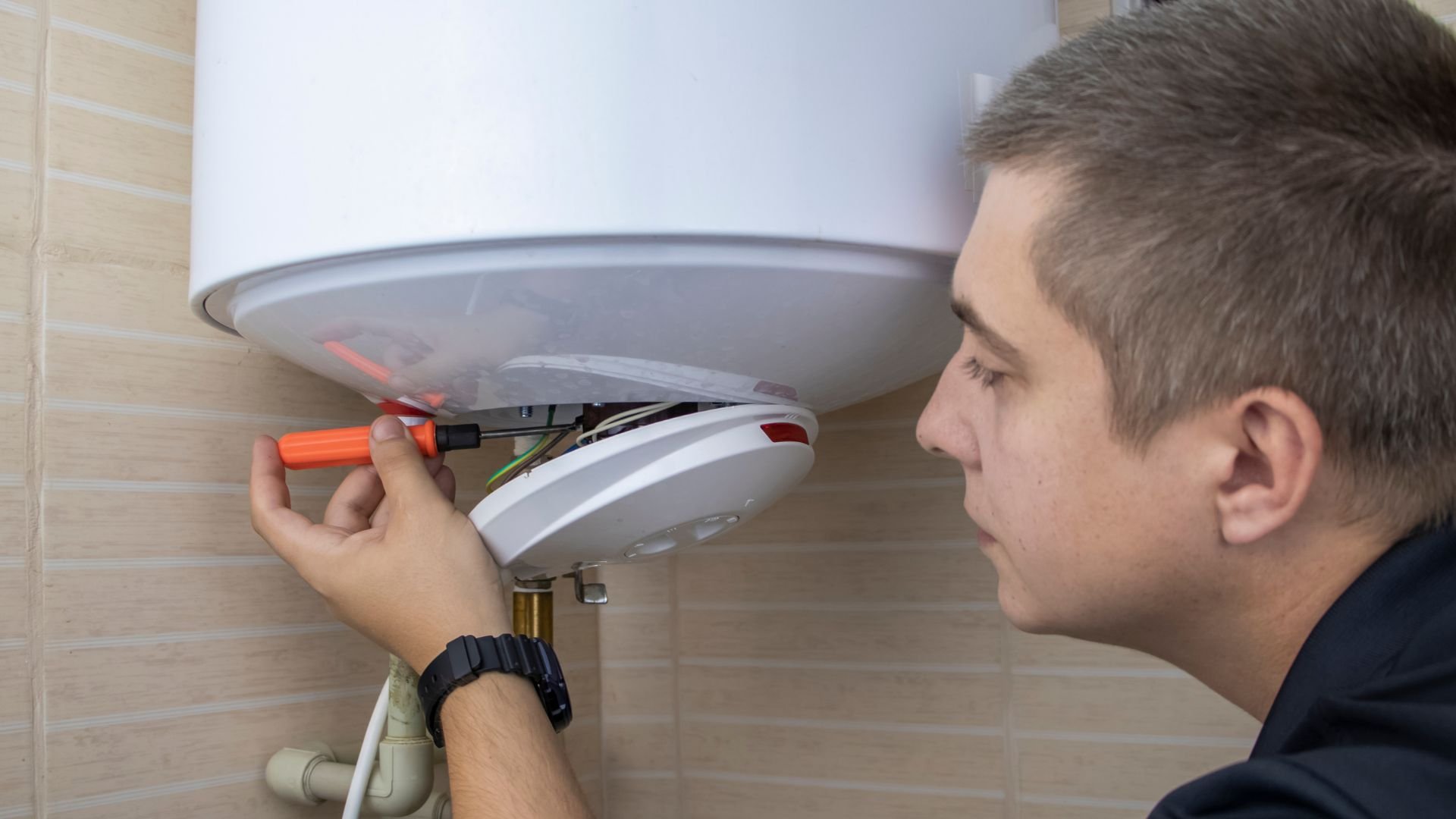
Featured Articles & Media
Benefits of a Vertical Stack Heat Pump vs Other Types
Heating, ventilation, and air conditioning (HVAC) systems are essential for creating comfortable indoor environments in both commercial and residential buildings. Yet, choosing the right system can be challenging. With multiple options on the market each claiming its own unique advantage, it can be difficult to identify which is best suited to your specific needs.
Use Cases for Through Wall Air Source Heat Pumps
A well-maintained water heater is essential for an efficient home, providing hot water when you need it while keeping energy costs under control. Regular cleaning is a key part of water heater upkeep, ensuring its longevity and optimal performance. Here’s a comprehensive guide to cleaning your water heater and keeping it in top shape.
How to Clean Your Water Heater for Maximum Efficiency
A well-maintained water heater is essential for an efficient home, providing hot water when you need it while keeping energy costs under control. Regular cleaning is a key part of water heater upkeep, ensuring its longevity and optimal performance. Here’s a comprehensive guide to cleaning your water heater and keeping it in top shape.
How Guard Dog Valves Revolutionize Water Management in Multifamily Buildings
Water management is a critical concern for multifamily building owners and managers. From the risk of leaks causing extensive damage to skyrocketing utility bills due to inefficiencies, managing water systems effectively can make or break the profitability of a property. Guard Dog Valves are a game-changing solution designed to address these challenges head-on.
Gas Vs Electric Water Heater - Which One Is Right For You
When choosing a water heater, one of the most crucial decisions you’ll face is whether to go for a gas or electric model. Both types offer distinct advantages and disadvantages, impacting factors like energy efficiency, cost, and overall performance.
DIY Water Heater Maintenance: Save Money and Avoid Hassle
Water heaters are a staple in every home, providing hot water necessary for everything from showers to dishwashing. Yet, many homeowners overlook the importance of regular maintenance until issues arise.
Water Conservation Strategies for Multifamily Buildings
Water conservation is becoming increasingly important in all sectors, especially in multifamily buildings, where high water usage and potential waste are common. In these settings, the collective impact of many residents means that effective water-saving strategies can lead to significant benefits, both for the environment and for operational costs. Below we’ll explore the key strategies for reducing water usage in multifamily buildings and why conservation is critical for long-term sustainability.
How Does an Engineered Hot Water Control System Work?
Hot water is essential in various settings, from homes and commercial buildings to hospitals, ensuring comfort, hygiene, and efficiency. Behind the seamless delivery of hot water at the right temperature lies a sophisticated system known as an engineered hot water control system. These systems are designed to regulate temperature, pressure, and flow while maintaining safety and energy efficiency. Below, we will explore how these systems work, their key components, and technological advancements.
How to Clean A Heat Pump For Optimal Performance
Heat pumps are an efficient way to heat and cool your home, but they require regular maintenance to operate at peak efficiency. Neglecting their upkeep can lead to reduced performance and higher energy costs. In this blog post, we'll guide you through the steps to clean your heat pump effectively and highlight the importance of regular maintenance.
Parts of a Water Heater and How They Work
Understanding the internal components of a water heater is crucial for building owners who want to ensure their systems run efficiently and last longer. Each part plays a specific role in heating and delivering hot water throughout a building. Moreover, incorporating advanced technologies like Gigawatt’s Flowmix can further enhance a water heater’s efficiency and lifespan. Let's explore the essential parts of a water heater and understand how Flowmix can make a significant difference.
Gigawatt Announces Exclusive Partnership With Epocha In Michigan And Illinois
CHICAGO – Gigawatt announces today the exclusive Michigan and Illinois distribution rights to Ephoca’s through-wall heat pumps. Ephoca's all-in-one (AIO) through-wall heat pumps are changing the game of energy-efficient heating and cooling by drastically simplifying the installation process and offering a sleek alternative to standard mini-splits. The innovative technology has no outdoor compressor or refrigerant line sets. Ephoca solves the challenge of retrofitting buildings without balconies and opens doors for decarbonizing multifamily apartment units across America.
Gigawatt Announces Pioneering Heat Pump Retrofit In Detroit | A Model For Decarbonizing Multifamily Buildings Across America
DETROIT – Gigawatt announces today the successful completion of a landmark heat pump retrofit project at 1800 W Bethune St., a historic 99-year-old building deeply rooted in Detroit's historic manufacturing heritage. The developer, Design Build Detroit, utilized Ephoca to solve the challenge of retrofitting buildings without balconies and opens doors for decarbonizing approximately 50,000 multifamily apartment units across Detroit.
Optimizing Hot Water Supply for Multifamily Buildings | How to Determine the Right-Sized Tank
Discover the ideal hot water tank size for your multifamily building. This article offers expert insights to help you calculate hot water demand and select the perfect capacity, ensuring comfort and efficiency for your residents. Finding the right hot water tank size for your multifamily property is critical for meeting demand, energy efficiency, system longevity, space utilization, and safety regulations.
Types of Water Heaters | Which One is Right for Your Multifamily Building?
Water heaters are indispensable appliances in multifamily buildings, ensuring a consistent hot water supply for various domestic needs. The choice of water heater type profoundly impacts efficiency, utility costs, and resident satisfaction. This article delves into the nuances of different water heater options to empower building owners with the knowledge to make informed decisions.
How Does a Water Heater Work?
Discover the principles behind water heaters, their components, and energy efficiency. Learn how Gigawatt’s products can help multifamily buildings decarbonize and save.
In an era where sustainability is paramount, energy-efficient water heating solutions are gaining traction. These innovations not only reduce utility costs but also minimize environmental impact, making them an attractive choice for multifamily buildings.
At the heart of every water heater lies a complex system designed to heat and distribute water efficiently.
Retrofitting Your Multifamily Buildings With Heat Pumps | How To Educate Your Tenants?
Heat pumps have gained immense importance in the green revolution within the construction and housing industry. They stand out as a remarkable solution for multifamily buildings’ heating and cooling needs, due to their exceptional energy efficiency and cost savings for both the owners and the tenants.
Educating your residents about the benefits of heat pumps requires a well-thought-out strategy.
Heat Pump Rebates | Find Out If You’re Eligible
The added rebates and federal tax credit benefits on Heat Pumps and their installation, help in offsetting the initial costs. You can bring down the initial cost of retrofitting your multifamily buildings by utilizing these rebates and reap the benefits of low energy bills for years to come. In the long run, you will enjoy an increased CAP rate and occupancy rate by tenants.
Reducing Carbon Emissions with the Inflation Reduction Act
Residents of the US will be given credits to live sustainability. For example, one can receive up to $7500 to buy electrical vehicles to replace their gas vehicles or $8000 to replace fossil fuel heating and cooling systems with heat pumps.



















